This is part two of a four-part series designed to walk financial advisors through the process of adding value to their clients by offering exposure to cryptocurrency. Part one is available here.
As a modern financial advisor who wants to add more value for your existing clients – while also positioning yourself to attract new clients – it’s important to adapt. Despite a tremendous increase in cryptocurrency interest in recent years, a relatively low percentage of financial advisors actually work with clients who hold crypto assets. If you’d like to better position yourself with this value add for existing and potential clients, it will mean adapting and evolving in the kinds of conversations you’re having, too.
In this article, we’ll examine seven questions you may hear from your clients:
- What is cryptocurrency?
- What are the different types of crypto assets?
- What is the difference between Bitcoin/Blockchain Network, the Lightening Network, and Bitcoin Cryptocurrency?
- What are cryptocurrencies used for?
- What are the risks with crypto?
- How can you invest in crypto safely?
- Why are cryptocurrencies so popular?
Our goal with the following discussion is to help you become more crypto competent, differentiate yourself from competitors, and have better conversations with your clients who are interested in crypto.
#1 – What is Cryptocurrency?
Cryptocurrency is one type of digital asset. It is simply a virtual, or digital, currency that is secured by cryptography, which makes it very difficult to counterfeit. Cryptocurrencies have a decentralized structure, meaning they are distributed across a network of computers. This also means they exist outside the influence of centralized financial authorities and governments. There are more than 10,000 different cryptocurrencies in use today.
#2 – What are the Different Types of Crypto Assets?
There are six types of cryptocurrencies:
Payment Currencies
As you might guess from the name, these currencies are used for payment. People use them to pay their bills or purchase goods and services. While any cryptocurrency can be used for these purposes from a technical standpoint, merchants are much more likely to accept payment currencies. Bitcoin (BTC) is the best-known example, and the payment currency most widely in use with stablecoins and CBDC’s being developed for future use.
Blockchain Economies
These platforms take the technology behind blockchain and create functionality beyond just payments. You can use them to create your own digital assets called tokens and decentralized applications, commonly called “Dapps.” So, each blockchain economy has a variety of different assets and applications. Ethereum (ETH) is the most popular one.
Privacy Coins
These lesser-known digital assets are focused on transaction privacy. While the Bitcoin blockchain, for instance, will show transaction amounts for every transaction, a privacy coin differs in that only the sender and the receiver know how many coins were transacted. ZCASH (ZEC) and Monero (XMR) are examples.
Utility Tokens
Since they’re run on a blockchain platform, utility tokens are one asset in a blockchain economy. They are used for blockchain-based goods and services. Most utility tokens, like Golem (GNT), are run on the Ethereum blockchain, but newer token types have begun emerging on other blockchains, as well.
Stablecoins
Unlike most digital assets and their expected price volatility, stablecoins aim to maintain the same value over time. This makes them popular with traders because, if they think an asset is going to lose value soon, they can trade it for stablecoins and prevent a financial loss. USD Coin (USDC) and Gemini (GUSD) are popular examples.
NFTs (Non-Fungible Tokens)
A non-fungible token (NFT) is a specialized type of cryptographic token that represents a unique digital asset that cannot be exchanged for another type of digital asset. This characteristic is in contrast to cryptocurrencies and blockchain utility tokens mentioned so far that are fungible in nature. NFTs are created via smart contract technology and are classified within the ERC-721 token standard on Ethereum.
#3 – What is the Difference Between Bitcoin Blockchain/Network, the Lightening Network, and the Bitcoin cryptocurrency?
Bitcoin Blockchain/Network
The Bitcoin blockchain/network refers to the peer-to-peer network that maintains a decentralized public ledger called the blockchain, also known as distributed ledger technology (DLT), which records the ownership of all Bitcoin cryptocurrency, the native digital asset token of the Bitcoin network.
Bitcoin Cryptocurrency
As mentioned above, Bitcoin cryptocurrency is the native digital asset token of the Bitcoin network.
The Lightening Network
The Bitcoin blockchain is relatively slow, generating a new block for the blockchain only once every 10 minutes, with a block size limited to 1MB. Further, it handles only seven transactions per second. To put things in perspective, Visa processes 24,000 transactions per second. One of the most promising solutions to Bitcoin’s scalability problem is the Lightning Network. The Lightning Network is what’s known as an off-chain or second-layer solution to the scalability problem, and it works on top of the blockchain.
#4 – What Are Cryptocurrencies Used For?
Crypto has a wide range of use cases. We’ve already discussed how payment currencies can be used for everyday transactions, but here are a few more uses for cryptocurrency:
• Low-Cost Money Transfers. Money transfers – especially high dollar transfers – can take days to process and come with significant fees. This is especially true of cross-border transactions. With cryptocurrency, though, you can transfer money quickly and cost-effectively. In 2018, someone transferred $99 million in Litecoin (LTC) – it took less than three minutes and cost the sender a paltry $0.40 in fees.
• Alternative Store of Wealth. This is a particularly common use for those living under dubious rule of law. Crypto assets cannot be frozen like an account at a centralized bank. In other words, this store of wealth isn’t subject to government censorship.
• Start-Up Fundraising. Digital, token-based fundraising is relatively new, but it has significant possibilities. It allows anyone with an internet connection to become an investor and provide seed capital in early-stage tech start-ups.
• Private Transactions. If you’d like to make an anonymous financial transaction, you can do so using a privacy coin, like those discussed previously. For example, you could make a large transfer of money without all the questions and bureaucratic red tape you might encounter from a bank.
• Travel Costs. Merchants such as CheapAir and Destinia now accept cryptocurrency payments for flights, car rentals, and hotel bookings. (Richard Branson even accepts Bitcoin payments for Virgin Galactic space travel bookings!) As the cryptocurrency ecosystem continues to grow, this will likely become an even more widespread practice among merchants and service providers.
#5 – What Are the Risks with Crypto?
Cryptocurrencies defy typical investment trends, and they are highly speculative as compared to other asset classes. Here are a few important risks your clients will need to know:
• Volatility – Cryptocurrencies are among the most volatile investment options. Here’s a recent example you can cite for your clients: In early 2021, the value of Dogecoin (DOGE) rose by a whopping 20,000 percent, then lost over one-third of its value by May 2021.
• Cyber Attacks. Cryptocurrencies have a particular appeal for cybercriminals because of their digital dependence. They’re kept in digital wallets and traded on digital exchanges. Phishing attacks are, unfortunately, rather common. (You can educate your clients on how to guard against hackers with our resource, Cybersecurity Tips for Engaging with Digital Assets).
• Decentralization. While this is arguably a strength of crypto, it can be viewed as a drawback, too. With no central authority, there is very little recourse in the event of a transaction dispute.
• Private Keys. When an investor opens a crypto wallet, it automatically generates a private key that is needed to access the wallet. No one else knows the private key, so if a user loses track of it, they lose the ability to access and control their crypto wallet and any assets inside.
For your clients who may want more on the pros and cons of crypto investments, check out this resource we created for individual investors.
#6 – How Can You Invest in Crypto Safely?
Knowing and understanding the risks involved with cryptocurrencies is the first critical step – and one which you can certainly help your clients take. We also recommend starting small, not investing more than you can afford to lose, and ignoring most of the crypto “advice” on social media.
If your clients are wondering how much they can afford to invest in cryptocurrencies, this resource walks them through assessing their finances before investing in this riskier asset class.
#7 – Why Are Cryptocurrencies So Popular?
It’s hard not to be tempted by crypto right now. It’s in the news every day, the crypto market is reaching new milestones all the time, and investors know there’s the potential to make serious gains on their investments. Not only that, but there’s a big “FOMO” component here, too, because all the headlines lead investors to believe they’re missing out if they’re not in the crypto market yet.
Additional Crypto Resources


Stay tuned for the next installment in this series, where we’ll discuss options for crypto exposure, how to custody crypto assets, and how much your clients should be investing. In the meantime, you can always reach out to us to ask a question or book a demo. At Arbor Digital, our mission is to be your connection to the Digital Asset (r)Evolution.





